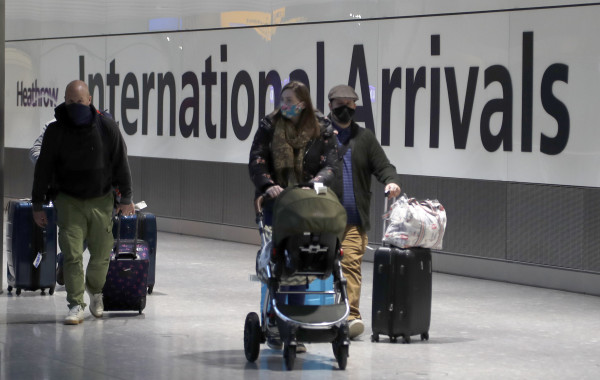

IFAs are geared towards the UK, so much so that anything non-UK is treated as “dodgy” meaning there is little competition for the country’s expat community on the mainland.
This is according to Finn Houlihan, managing director of Arlo Group UK, a subsidiary of boutique wealth management firm Arlo International.
“A typical IFA company or a network is so geared up to the UK market. They’re constantly thinking about managing their risk as a firm,” Houlihan told FTAdviser.
“But actually, when we look at PI [professional indemnity] cover, for example, it doesn't affect the premium having non-residents [as clients].
“All PI firms want to know at the moment is ‘what's our involvement with DB [defined benefit] pensions?’ That's where the risk is in our market at the moment.”
Houlihan said there seems to be a perception in the UK that “anything non-UK is dodgy”.
“It’s this feeling of ‘no, no, we would touch that’. It's that unknown. And I think for a lot of IFA companies, there's enough business for them to operate in the UK. They don't need to entertain going outside of the UK.”
Competing globally
Arlo Group UK was set up after its parent company in the Middle East found an increasing number of clients returning with their wealth to the UK from cities such as Dubai.
In the past two years, it’s gone from £5mn to £140mn in assets under management, and grown from one to 17 advisers.
The majority of advisers who have joined the team come from overseas, having struggled to find a solution for their returning UK expats.
The firm is regulated by the Financial Conduct Authority, has set up an attached tax company ‘ATC Tax’, and uses both Novia Financial and Novia Global to allow clients to more easily switch assets between platforms when on or off-shore.
“The competition isn’t that high [in the UK]. Most of our competition is outside of the UK,” said Houlihan, citing overseas competitors such as AES International, Globaleye, and DeVere Group.
“These are all international IFAs. They're very much chasing the DB pensions and they're doing commission[-based] financial planning. That’s not a space we're in,” said Houlihan.
Thinking of UK companies offering the service Arlo Group UK does, Houlihan mentioned the Fry Group, his previous employer of five years. “But to be honest with you, I can’t really think of any other examples.”
According to Houlihan, Dubai as a place to work is often pitched as a place where professionals can earn a lot without incurring the sorts of taxes to which UK-based workers are used.
In the United Arab Emirates, unlike the UK, there is no capital gains tax or income tax, and workers are often offered packages which subsidise accommodation and children’s education. Capital gains are taxed as part of regular business profits.
That being said, Houlihan added that clients are often reluctant to keep their money in Dubai.
“They don’t trust the set-up in Dubai. Ultimately, it’s Sharia law which rules there. With Sharia law, even though you’ve got these free zones within Dubai, that could be ripped away overnight.
“There’s always this paranoia with expats, so what they tend to do is not keep their wealth in Dubai.”
Instead they’ll keep it in Guernsey or Isle of Man, whilst holding properties in the UK.
“As an adviser, making that recommendation is very easy. We just have to keep it in a clean, RDR [Retail Distribution Review] compliant platform which we can use offshore. And then obviously work alongside the tax adviser.”
Building client trust on tax
Arlo Group UK is a tax-led proposition. “We build up client trust on tax, which then flows nicely into financial planning,” Houlihan explained.
One client group the IFA works with are pilots. During the pandemic, the government-backed airline Emirates sacked a number of its pilots in a wider 9,000 staff cutting exercise.
For pilots, this meant they lost their residency, meaning they had to move back to the UK, or hop between countries before the pandemic caught up with them.
Houlihan’s team helped a number of these pilots move back without incurring UK tax on their Dubai salaries. If someone is out of the country for five complete tax years their gains are liable to Capital Gains Tax, which means they need to be crystallised before an expat returns.
Since the pandemic, Houlihan has seen an uptick in workers leaving for overseas territories as their jobs no longer require them to work in the UK.
“We’re receiving more enquiries now from people sitting on a beach with their laptop,” said Houlihan. “Tax regimes aren’t built for free movement, despite the trend towards it.”
ruby.hinchliffe@ft.com



